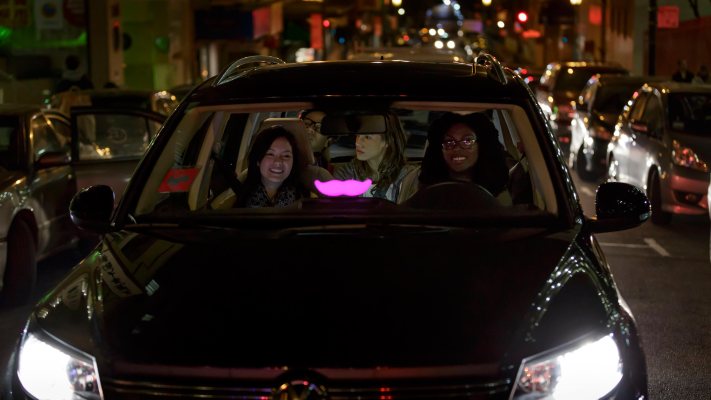
A class-action lawsuit led by a number of Lyft drivers against Uber regarding the alleged “Hell” spying program is moving forward in an amended way. The lawsuit, brought by Lyft driver Michael Gonzales on behalf of other Lyft drivers, alleges Uber wrongfully intercepted the communications and whereabouts of Lyft drivers, and resulted in the loss of revenue.
Uber reportedly used Hell to track Lyft drivers to see how many were available to give rides and what their prices were. Hell could allegedly also determine if people were driving for both Uber and Lyft.
Judge Jacqueline Scott Corley dismissed most of the lawsuit yesterday, but is allowing Lyft drivers to file an amended complaint that pertains to monetary losses as a result of unfair competition. In Judge Corley’s ruling, she determined the plaintiff did not sufficiently argue Uber’s violation of the Wiretap Act via interception of communications. Judge Corley also dismissed the plaintiff’s claim that Uber violated the Stored Communications Act and the California Invasion of Privacy Act.
Additionally, Judge Corley dismissed the claim that Uber violated the CA Comprehensive Computer Data Access and Fraud Act with leave to amend “to the extent Plaintiff can allege facts that plausibly suggest Uber violated a particular subsection of the Act.”
While Judge Corley dismissed the majority of the plaintiff’s claims, Gonzales can file an amended complaint specifically pertaining to unfair competition. From the ruling:
Plaintiff alleges that by encouraging drivers to use the Uber platform exclusively, and not also drive for Lyft, that reduced the supply of Lyft drivers thereby increasing wait times and causing Lyft drivers to experience decreased earnings; in particular, the longer wait time would cause a passenger to cancel the Lyft request and request a new ride from Uber. (FAC ¶ 9, 101, 102.) These factual allegations, which the Court must accept as true, are sufficient to satisfy the lost money or property requirement of UCL standing.
Judge Corley went on to say that Gonzales sufficiently argued he lost revenue as a result of Uber’s attempts to decrease the supply of Lyft drivers.
“Whether Plaintiff will be able to prove that allegation is a question for another day,” Judge Corley wrote.
This comes after Judge Corley dismissed Gonzales’ original complaint with leave to amend in August. Gonzales then filed an amended complaint seeking similar relief with two additional claims. The added claims alleged Uber violated the Federal Stored Communication Act and the California Computer Fraud and Abuse Act. In response, Uber filed a motion to dismiss.
I’ve reached out to Uber and will update this story if I hear back.


